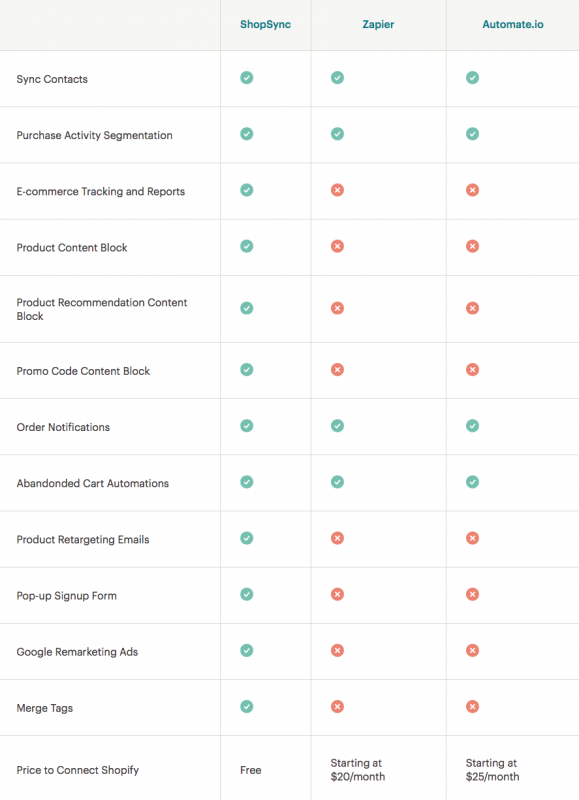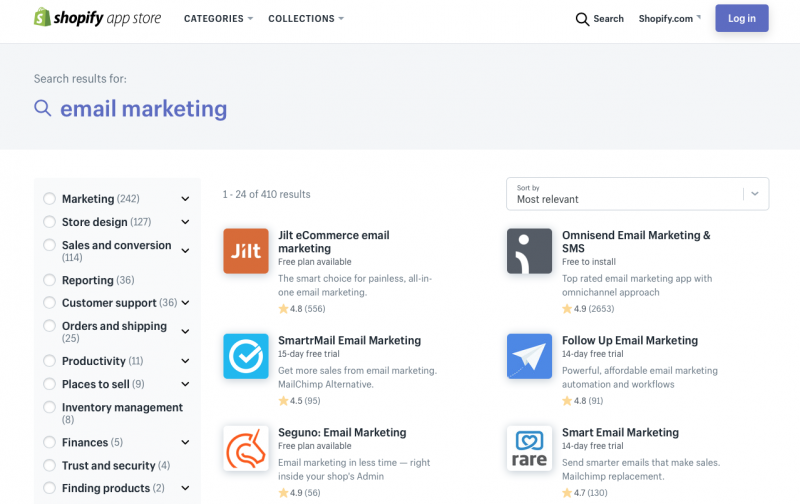Mailchimp Parted Ways with Shopify: Here’s What You Need to Know
On the 21st March we have witnessed the biggest announcement from 2 well-known organisations that has surprised anyone in eCommerce industry- the official end of the MailChimp’s partnership with Shopify.
What do we know about this case? Here’s why Mailchimp is no longer in the Shopify App Store.
“Over the past 18 months Shopify has had growing concerns about Mailchimp’s app because of the poor merchant experience and their refusal to respect our Partner Program Agreement. Our terms require app partners to share all important data back to the merchant using Shopify’s API to help them run their businesses.
It’s critical for our merchants to have accurate, complete insight into their businesses and customers, and this isn’t possible when Mailchimp locks in their data.”
“For months, we’ve been trying to work with Shopify on terms that would be fair and equitable for both of our businesses. Throughout these negotiations, we refused to agree to terms that jeopardize our users’ privacy and require us to hand over customer data acquired outside of Shopify.
Our shared users have complete control over their own data. By continuing to connect with Shopify through third-party integrations, we’re providing our shared users with the choice to share that data going forward. What we’re not willing to do is automatically and retroactively share all of this data with Shopify, including data acquired outside of and not connected to the Shopify platform, without the user involved. From our perspective, that data belongs to our users and isn’t ours to share directly with Shopify.”
The organisations have been fighting over customer rel=”noopener noreferrer” data, which has also rel=”noopener noreferrer” happened before, when Facebook has run into trouble with Apple over a controversial data-collecting app the social network used for market research.
Coming back to our main subject, this certainly rises a lot of concerns across Shopify stores that have Mailchimp already integrated with the platform. If you are one of them, don’t panic! Both companies came up with several alternative solutions to solve the issues and protect their customers.
Let’s discuss the MailChimp and Shopify breakup and how it affects the future of eCommerce and email marketing.
The End of The Partnership
The Mailchimp for Shopify integration will no longer be available for new downloads. The integration however, will remain available for people who are already using it through May 12, when the data sharing provisions of Shopify’s new terms take effect.
Shopify says, that the company “had growing concerns about Mailchimp’s app necause of the poor merchant experience and their refusal to respect our Partner Prgoram Agreement.”
Even though both companies are not able to continue this partnership, they are hoping to work together to achieve a smooth transition, treating their customers as top priority.
About Alternative Solutions
What options do we have if our Shopify store has Mailchimp integrated with the platform? Let’s go over the key reliable solutions that will help you save your time and rel=”noopener noreferrer” customer data that you need.
What are the workabouts if you wish to continue working with Shopify and Mailchimp?
Third-party rel=”noopener noreferrer” Integrations
Third-party integrations, rel=”noopener noreferrer” like ShopSync, Zapier, and Automate.io, support most of our powerful e-commerce tools, like syncing store data, triggering automations, and more. They offer the ability to connect rel=”noopener noreferrer” your Mailchimp account to Shopify. If these don’t rel=”noopener noreferrer” fit your needs, you can also find the full list of all Mailchimp eCommerce integrations on their website.

Source: Mailchimp.com
Import Customer Data
A traditional import in Mailchimp can help you manually add customers to your list. All you have to do is export Shopify customer data that will then be delivered as a CSV file rel=”noopener noreferrer” to the email address associated with your account. rel=”noopener noreferrer” You will have all your customers and their data in one place. You can find the detailed step by step guide on Mailchimp’s website.
Install Mailchimp Site Code
Mailchimp offers a custom code that you can embed on your website to activate certain features like pop-up forms and retargeting ads. It however won’t allow you to access other Mailchimp’s features like product recommendations and reports. This task is on advanced level, so it is recommended for users who are familiar with custom coding. rel=”noopener noreferrer” If you need assistance, contact one of our experienced developers.
In addition, Shopify App Store offers several alternative email marketing integrations, that can be easily downloaded and work with your Shopify store. You can try a new integration that best suits your needs and goals.

Source:Shopify.com
Let’s wrap it up
The two companies argue they are putting their customer’s privacy first, and we still don’t know who is right or wrong. There is nothing to worry about with plenty of other options on the market for both Shopify and Mailchimp users. The above are recommendations that we believe will help you pick an alternative solution that meets your requirements. Whichever path you’ll decide to take, remember we have a dedicated team of eCommerce developers, that can happily assist you during the process.
Best of luck!
Subscribe To Us
Contributors
Categories
Subscribe To Us
Contributors
Categories

This website uses cookies so that we can provide you with the best user experience possible. Cookie information is stored in your browser and performs functions such as recognising you when you return to our website and helping our team to understand which sections of the website you find most interesting and useful. Third party cookies such as Google Analytics is also used on this site to provide analytics in order to better understand the user engagement on our site.
You can adjust all of your cookie settings by navigating the tabs on the left hand side.
Strictly Necessary Cookie should be enabled at all times so that we can save your preferences for cookie settings.
If you disable this cookie, we will not be able to save your preferences. This means that every time you visit this website you will need to enable or disable cookies again.







0.Comments